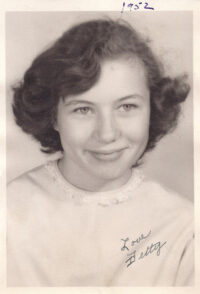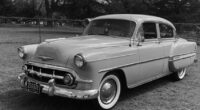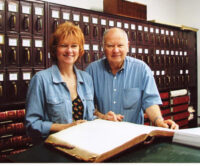Chapter 17: 1920 • Minnesota ~ When the wheels needed to be changed or the axles greased, my father—not yet a man—lifted the more than 200-pound hay wagon with his back, raised it higher with his arms, and held it steady while his older brother Aloysius, or Louie as the family called him, slipped the new wheel on the axle. That’s how strong he was.
Working in the fields alongside his mother one burning afternoon, Carl observed her intently. Stooped and worn, gray strands of hair straggling from her bun, dampened by sweat escaping her forehead, he saw how tired and weathered she looked. Her back bent shocking wheat, she took the sheaves of grain, tied them, then carefully stood the bundles upright in the field for drying. He decided then and there that wasn’t going to happen to him, knowing if he stayed he’d sink into her footprints forever, tied to endless seasons of disking fields, planting corn, and milking cows.
When he was 15, Carl pooled his money with three friends, Paul, Johnny, and Tone (Anthony was his given name; later in life he went by One-Eyed Mike). They bought a touring car, an open-topped green Chevrolet with isinglass curtains. It was a clunker that cost them $10 apiece, all they could afford. Johnny was the only one who could drive, and he drove like a maniac. He was the drinker of the group, sometimes pouring it down for a week. Tone and Paul drank heavily too, but not like Johnny. Carl, the oldest of the four, was the only one who didn’t partake; alcohol made him sick as a poisoned pup.
When they rolled the car on the country roads, they all got out and tipped it back up on its wheels to take off again. Carl soon took over the driving. He was reputed to be a hot-rodder, accelerating with the cutout wide open. He drove fast, but he drove sober. Every time his mother heard their phone ring, one short and one long, she was sure her son was in another accident and someone was hurt, or worse, dead. Nobody was—not seriously anyway—although Carl did come home once with his arm torn open. A scar ran the whole length of his forearm. It wasn’t something he bragged about.

My grandmother was of the opinion boys should stay home and work on the farm. Carl, at 16, was of a different opinion. Trying to please his mother was about as easy as jumping over his own knees, and one morning he disappeared and didn’t return. Grandma was hurt; she worried about him constantly and prayed he’d come home. No matter to Carl, he was tired of being told what to do.
When he was eighteen, Carl decided to head west for work and adventure. He called Tone, Johnny, and Paul, and the four packed cowhide suitcases and hopped into their Chevy. The three drank their way to Seattle while Carl drove. Sobering up, they decided not to stay, dropped Carl off, turned around, and drove back. They knew they were farmers, rooted to the soil of Minnesota. Carl remained in Seattle, getting a job in the lumber mills. He eventually landed in California where there was better work and better weather. My father, the only man in the family to leave the farming life, was considered the smart one.
To be continued…
Catherine Sevenau is a writer, humorist, and storyteller living in Sonoma, California. The stories in this series are excerpts from her book, Through Any Given Door, a Family Memoir, available as a series at Sevenau.com. A longtime Realtor and Owner/Broker at CENTURY 21 Wine Country. [email protected]





Be First to Comment